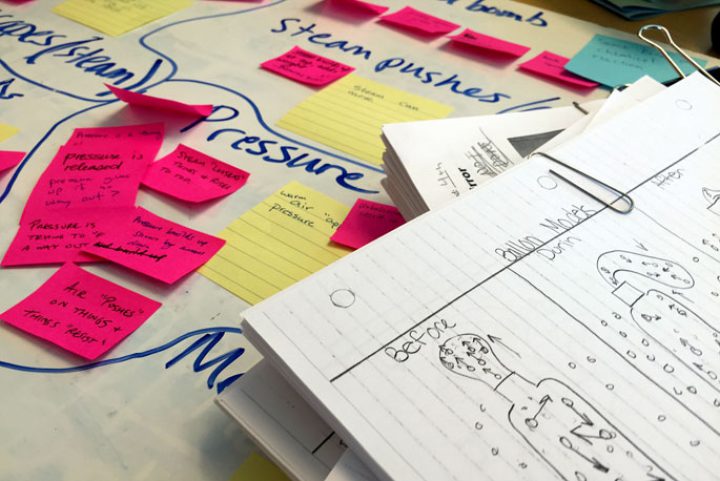ACESSE Resource F — Seeing Facets, not Misconceptions: How to Build on the Range of Student Thinking in Instruction

Students bring a range of intellectual and cultural resources, which they have accumulated in their unique life experiences, into the classroom as they learn science. These resources can be considered different “facets” of student thinking. These resources may relate to their conceptual understanding of natural phenomena, their repertoires of practice when engaging in scientific activity, or their abilities to productively engage with school and classroom approaches to learning. Student’s facets of thinking can be leveraged to help students as they refine their understanding of science phenomena. This session introduces the facet-based approach, then engages participants in identifying facets in a batch of student work and in developing corresponding assessment rubrics, preparing them to use this approach in their own teaching.
This learning experience will help participants:
- Analyze cognitive formative assessment responses to surface the range of student thinking about science topics and concepts
- Guide instruction based on that diversity of student ideas
- Design and use classroom formative assessment tasks to support equitable 3D instruction
Link to PowerPoint File Version
Link to Facilitator’s Guide for this Resource
Link to Student Work for this PD Session (Supplemental work: Set 1 & Set 2)
One-Page Description of this Resource (PDF)
Recording of this Professional Development Session
This workshop helps educators develop an asset-based approach to engaging with the diversity of student thinking and introduces them to practical and powerful ways to guide instruction based on all of the intellectual resources of each student. This resource is estimated to take about 300 minutes (~5 hours) depending on the choices of the facilitator in scenario selection. It can comfortably be done within one full day professional learning session.
This resource is an open educational resource (OER) and can be freely shared, modified, and used. This resource is brought to you by the Advancing Coherent and Equitable Systems of Science Education (ACESSE, or “access”) project—a collaboration between the Council of State Science Supervisors, the University of Colorado at Boulder, and the University of Washington Seattle. It has been developed with guidance from science education experts from across the country to make it as broadly useful as possible. You can follow the work of the ACESSE project on Twitter.
Preferred citation: Bell, P. & Neill, T. (2022). Seeing Facets, not Misconceptions: How to Build on the Range of Student Thinking. [OER Professional Development Session from the ACESSE Project] Retrieved from http://stemteachingtools.org/pd/sessionf
